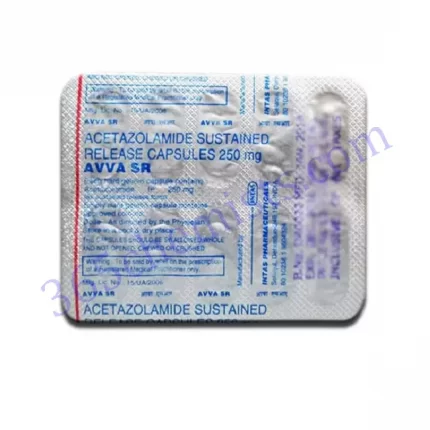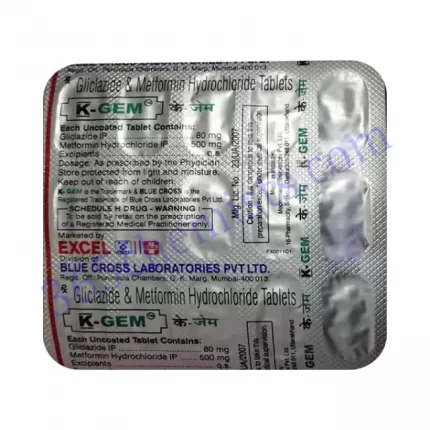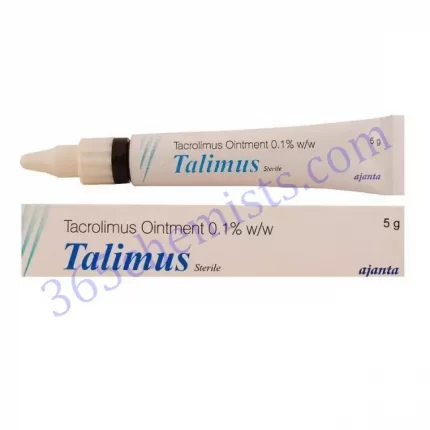INTRODUCTION
AZAPURE 50MG contains azathioprine which belongs to a group of medicines called immunosuppressants. It helps to reduce or suppress your body’s own immune system. Your immune system helps to protect you against infections. But at sometimes if you have an organ transplant, your immune system will try to reject new organ. This medicine helps in preventing the immune response which allows the transplanted organs to work. Hence it is used with corticosteroids to improve the survival of transplanted organs.
Azathioprine is also used to treat conditions caused by your immune system overreacting or reacting abnormally such as rheumatoid arthritis (inflammation and pain in joints), hepatitis (inflamed liver), hemolytic anaemia, dermatomyositis (inflammation of the muscles and skin) and polyarteritis nodosa (inflammation of your blood vessels). AZAPURE 50MG may be used alone, or in combination with other medicines to treat these conditions.
USES OF AZAPURE 50MG
- Helps to prevent the immune response to improve the survival of transplanted organs
- Used to treat inflammatory bowel disease (Crohn’s disease or ulcerative colitis)
- Treat Rheumatoid arthiritis
HOW AZAPURE 50MG WORKS
Azathioprine inhibits purine synthesis which is needed to produce DNA and RNA. DNA and RNA production are reduced resulting in less synthesis of white blood cells, thus causing immunosuppression.
DIRECTIONS FOR USE
Always take AZAPURE 50MG exactly as prescribed by your doctor. Swallow the medicine whole with plenty of water.
SIDE EFFECTS OF AZAPURE 50MG
SERIOUS
- Allergic reactions such as general tiredness, dizziness, feeling sick (nausea), being sick (vomiting), diarrhea or abdominal pain, swelling of the eyelids, face or lips, redness of the skin or a skin rash (including blisters, itching or peeling skin) and pain in the muscles or joints
- Get any ulcers in the throat, fever, bruises or bleeding, or you think you have an infection
- Sudden wheeziness, difficulty in breathing, swelling of eyelids, face or lips, rash or itching
COMMON
- Signs of a viral, fungal or bacterial infection
- Low levels of white blood cells
- Reduction in blood platelets
RARE
- Various types of cancers including blood, lymph and skin cancers
- Raised red, pink or purple lumps
- Stomach pain and swelling
- Yellowing of the skin or whites of the eyes
- Disturbances of the bowel such as inflammation
- Severe reduction of all types of blood cells
- Severe blistering of skin, mouth, throat, nose, genitals and conjunctivitis (red and swollen eyes)
HOW TO MANAGE SIDE EFFECTS
Skin rash and itching:
Avoid bathing with hot water because hot water can irritate the skin. Moisturizers can be used regular basis to soothe and hydrate the affected area.
Nausea and vomiting:
Keep try taking this medicine with, or just after, a meal or snack and stick to simple meals and do not eat rich or spicy food.
WARNING & PRECAUTIONS
PREGNANCY
AZAPURE 50MG is not recommended for use in pregnant women unless necessary. Discuss the risks and benefits with your doctor.
BREASTFEEDING
AZAPURE 50MG is not recommended for use in breastfeeding women unless necessary. Discuss the risks and benefits with your doctor.
DRIVING AND USING MACHINES
Do not drive or operate any machinery while taking this medicine, it may make you feel dizziness.
ALCOHOL
Avoid consumption of alcohol while taking this medicine.
KIDNEY
AZAPURE 50MG should be taken with caution in patients with severe kidney disease. Consult your doctor for advice.
LIVER
AZAPURE 50MG should be taken with caution in patients with severe liver disease. Consult your doctor for advice.
ALLERGY
Do not take if you are allergic to the medicine.
LUNGS
AZAPURE 50MG should be taken with caution in patients with lung disease. Consult your doctor for advice.
HEART DISEASE
If you have any heart related problems, consult your doctor for advice before taking this medicine.
INTERACTIONS
Talk to your doctor if you are taking:
- Other immunosuppressants e.g. ciclosporin, methotrexate, tacrolimus
- Medicines to treat cancer e.g. doxorubicin
- Allopurinol, oxipurinol or thiopurinol or other xanthine oxidase inhibitors, like febuxostat (for gout or kidney stones)
- Cimetidine (for gut or stomach ulcers)
- Furosemide (‘water tablets’)
- Penicillamine (for rheumatoid arthritis)
- Warfarin (to ‘thin’ the blood)
- Captopril (for blood pressure or heart failure)
- Indomethacin (an anti-inflammatory)
- Co-trimoxazole (an antibiotic)
- Mesalazine, olsalazine, sulfasalazine or balsalazide are mainly used to treat ulcerative colitis













Reviews
There are no reviews yet.